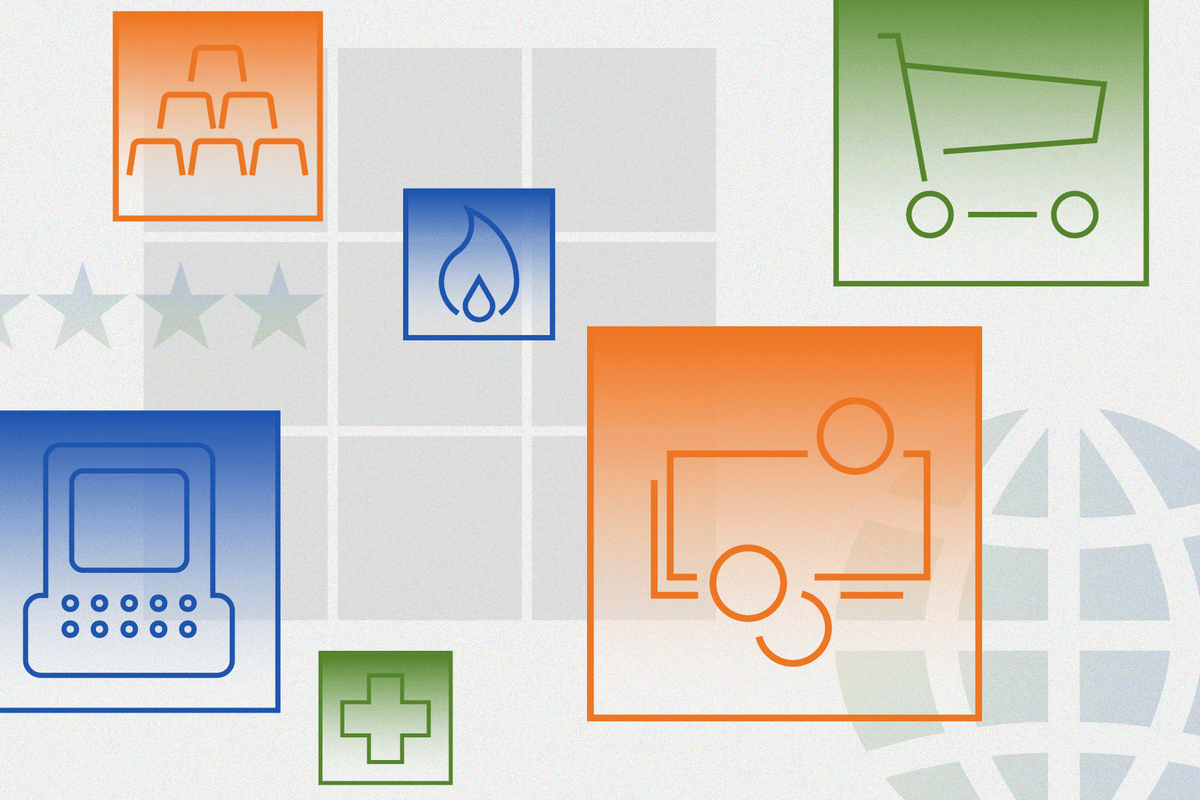:quality(80)/cloudfront-us-east-1.images.arcpublishing.com/morningstar/KD4XZLC72BDERAS3VXD6QM5MUY.png)
Biogen BIIB is expanding its neurology portfolio beyond multiple sclerosis, including blockbuster neuromuscular disease drug Spinraza and Alzheimer’s disease drug Leqembi. In MS, Avonex and longer-acting Plegridy generate nearly US$2 billion in annual sales and remain the leading MS interferon drugs. MS antibody Tysabri also sees US$2 billion in annual sales due to its high efficacy but will feel pressure from biosimilars. Oral MS drug Tecfidera peaked above US$4 billion in sales in 2019, but U.S. generics drastically cut into sales in 2021. We think new oral therapy Vumerity offers improved gastrointestinal tolerability but will only partly offset this headwind. While pricing power and demand for the injectable MS portfolio are eroding in the face of new competition, Biogen receives substantial royalties on the biggest new competitor, Roche’s Ocrevus, which helps offset pressure on older MS drugs. New drugs like Zurzuvae for postpartum depression, Qalsody for amyotrophic lateral sclerosis, and Skyclarys for Friedreich ataxia support Biogen’s portfolio. We also think the market underestimates Biogen’s pipeline, which includes drug candidates to treat conditions including Alzheimer’s, lupus, Parkinson’s, and ALS.
Key Morningstar Metrics for Biogen
Fair Value Estimate: US$303
Star Rating: 4 Stars
Economic Moat Rating: Wide
Uncertainty Rating: High
Economic Moat Rating
Biogen has achieved strong profitability based on its diversified MS portfolio and its Roche collaboration in oncology, and it has the intangible assets to support a wide moat. We think barriers to entry are high for potential biosimilars to Biogen’s products, and the company has a strong research and development strategy for maintaining its leadership in MS and neurodegenerative diseases, where pricing power is strong, patient need for novel therapies is high, and it has been building a solid pipeline. Returns on invested capital, historically north of 20%, are likely to bottom out over the next couple of years due to generic pressure on Tecfidera and biosimilar pressure on Rituxan and Tysabri. However, we expect ROICs to continue to exceed our 7.2% cost of capital estimate and to rebound to the midteens in the long run.
Fair Value Estimate for Biogen Stock
Our fair value estimate is US$303 per share. We think Biogen’s top line will return to 2020 levels by 2028, with growth returning in 2025 as the Leqembi launch expands. We include a placeholder for future litigation risk at roughly 1% of non-GAAP net income. We assume more than US$7 billion in global peak sales of Biogen/Eisai’s Leqembi. We include a 30% probability of approval and $2 billion in probability-weighted sales by 2030 for antisense tau drug BIIB080, which is in phase 2. We expect sales of newly approved drug Skyclarys will eventually exceed US$1 billion. We think combined global sales of Avonex and Plegridy will continue to fall, with low-double-digit declines annually because of new competition. We expect steeper Tysabri declines beginning in 2024, following the launch of a Sandoz biosimilar. We include Ocrevus peak sales of US$9 billion.
Risk and Uncertainty
Biogen’s profitability depends on three key blockbusters (Avonex/Plegridy, Tysabri, and Spinraza) and recently approved drugs, including Alzheimer’s drug Leqembi. While demand is relatively inelastic for Biogen’s portfolio of MS treatments, the commercial failure of Alzheimer’s drug Aduhelm demonstrates the high-risk nature of some of Biogen’s pipeline targets. Biogen is still vulnerable to biosimilar Rituxan, which launched in 2020 in the US, as revenue from the Roche collaboration feeds directly to the bottom line and boosts margins. We think the company does face some environmental, social, and governance risk, particularly related to potential U.S. drug price-related policy reform and ongoing potential for product governance issues.
Biogen Bulls Say
- Biogen leads the US$20 billion global MS market with Avonex, Plegridy, Tysabri, and Tecfidera. The launch of Vumerity partly protects Tecfidera sales from generic headwinds in the U.S.
- Biogen receives royalties and profit share from Roche on MS drug Ocrevus and multiple CD20-targeted cancer therapies, boosting profitability.
- Biogen’s neurology portfolio outside of MS, including Leqembi in Alzheimer’s, should help diversify revenue and boost sales growth.
Biogen Bears Say
- Injectable MS therapies like Avonex have lost their edge, as branded oral competitors and generic injectables have launched and Tysabri looks vulnerable to biosimilars.
- Biogen’s phase 3 Alzheimer’s program for aducanumab was halted in March 2019 and produced mixed data. While the drug was approved in the U.S. in June 2021, it has been a commercial failure and discontinued.
- Spinraza’s annual sales quickly grew to US$2 billion, but oral competition and gene therapy threaten growth.
The author or authors do not own shares in any securities mentioned in this article.




















